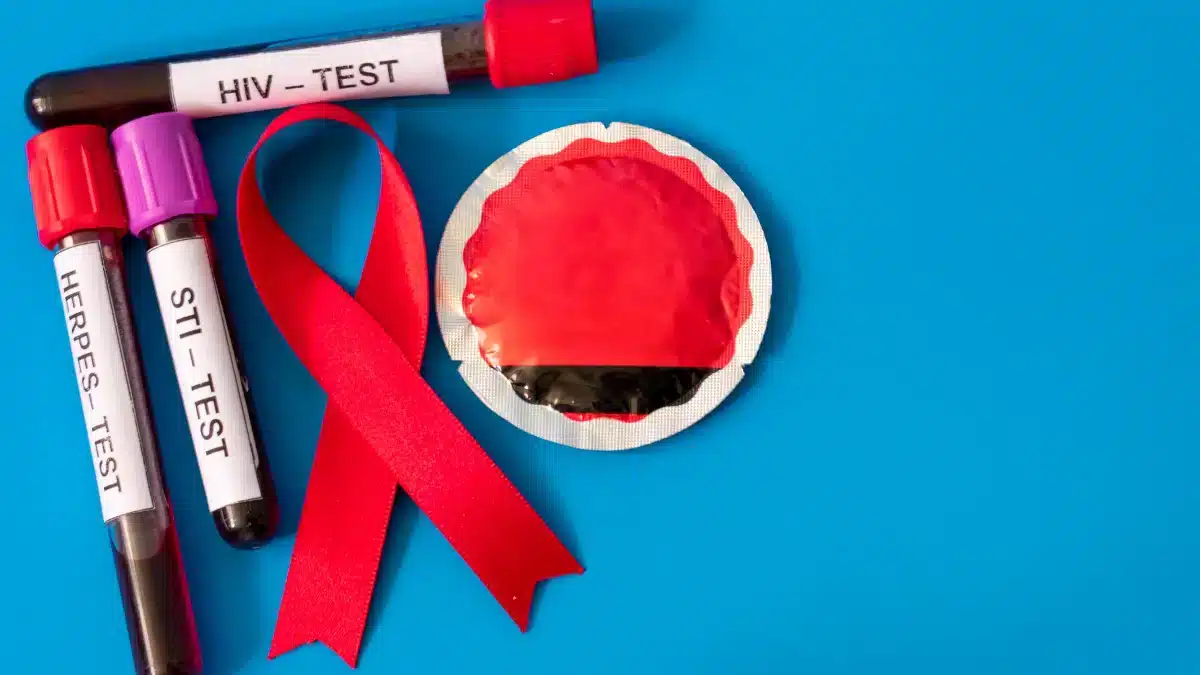Is Herpes a STD? Understanding the Basics
Herpes is a common viral infection affecting millions worldwide.
One question that often arises is whether “Is Herpes a STD?”.
In this article, we will delve into the intricacies of Herpes, its transmission, and its connection to sexual activity.
By untangling these complexities, we aim to clearly understand whether Herpes falls under the category of Sexually Transmitted Diseases, unraveling its impact on individual well-being.
Explore with us as we simplify the intricacies of Herpes, providing valuable insights into its classification and implications.
What is Herpes
The Herpes Simplex Virus (HSV) is responsible for Herpes, and it manifests in two primary forms: HSV-1 and HSV-2.
HSV-1 is frequently connected with oral Herpes, leading to the development of cold sores, whereas HSV-2 is commonly associated with genital Herpes.
Both Herpes viruses can cause infections in the mouth, lips, and genital areas.
Transmission of Herpes

Herpes primarily spreads through contact with an infected person’s skin or bodily fluids.
The virus can be transmitted through kissing, oral sex, and sexual intercourse.
It’s important to emphasize that Herpes can be transmitted without visible symptoms or sores, posing a significant challenge to complete prevention.

Erase discomfort, embrace relief – conquer STDs swiftly!
Reclaim your health with superior antibiotic solutions from WowRx.
Ciplox 250mgLevoflox 750mgIs Herpes considered an STD
Yes, Herpes is considered a Sexually Transmitted Disease.
It falls into this category because the term “Sexually Transmitted Disease” encompasses various infections that can be transmitted through sexual activity.
Herpes is included in this classification due to its high likelihood of being transmitted during intimate contact.
Symptoms of Herpes
Herpes infections can manifest with various symptoms, including:
Oral Herpes (HSV-1)
Symptoms of oral Herpes include:
- Fever blisters or cold sores in the vicinity of the mouth
- Pain or tingling in the affected area
Genital Herpes (HSV-2)
Symptoms of Genital Herpes include:
- Painful sores or blisters in the genital and anal areas
- Itching and discomfort in the affected regions
It’s essential to consult a healthcare professional for an accurate diagnosis if you suspect you have Herpes.
Testing and diagnosis
Diagnosing Herpes involves clinical evaluation and, if necessary, laboratory tests.
Common tests include viral culture, Polymerase Chain Reaction (PCR), and blood tests to detect antibodies against the virus.
Timely identification is essential for effectively managing the condition and curbing its transmission.
Prevention

While Herpes is highly contagious, several preventive measures can reduce the risk of transmission:
- Safe sex practices: Consistent and proper utilization of condoms or dental dams during sexual activity, refraining from intimate contact during outbreaks. Avoiding sexual contact during outbreaks
- Communication: Open communication with sexual partners about Herpes status. Understanding and respecting each other’s boundaries
- Antiviral medications: Medications prescribed by healthcare professionals can help manage and reduce the frequency of outbreaks
Living with Herpes
Being diagnosed with Herpes can be emotionally challenging, but it’s crucial to remember that it is a manageable condition.
Support groups, counseling, and education can aid individuals in coping with the emotional aspects of living with Herpes.
Conclusion
Herpes is indeed classified as a Sexually Transmitted Disease due to its mode of transmission.
Understanding the symptoms, testing, prevention, and living with Herpes are essential to managing this common viral infection.
If you suspect you have Herpes or have been diagnosed, seeking guidance from healthcare professionals is crucial for proper management and support.
Remember, knowledge and awareness play key roles in preventing the spread of Herpes and promoting overall sexual health.
Frequently Asked Questions
What STDs look like Herpes?
Conditions such as syphilis and genital warts can resemble Herpes symptoms. Proper testing and diagnosis by a healthcare professional are essential for accurate identification and treatment.
Is oral Herpes a STD?
Yes, oral Herpes, caused by the Herpes simplex virus (HSV-1), is considered a sexually transmitted disease (STD). It can be transmitted through activities like kissing and oral sex.
Does Herpes show up on an STD test?
Herpes can be detected through specific STD tests, including viral culture, polymerase chain reaction (PCR), and blood tests designed to identify antibodies against the Herpes simplex virus.
Is Herpes labialis an STD?
Yes, Herpes labialis, commonly known as cold sores, is caused by HSV-1 and can be transmitted through intimate contact, making it a STD.
WowRx uses only high-quality sources while writing our articles. Please read our content information policy to know more about how we keep our content reliable and trustworthy.






